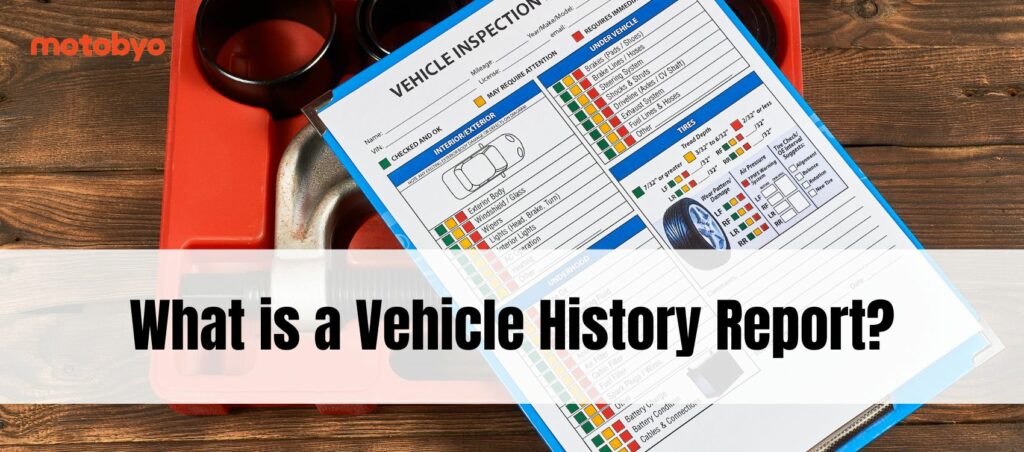Vehicle history information is important whether you’re thinking of buying a used car or you’re looking to sell your vehicle. Buyers want to be sure that the car is reliable and ready to hit the road. And sellers want a good price and a hassle-free sale. This is where a vehicle history report can help.
A vehicle history report is a collection of records and events in a car’s lifetime compiled from thousands of sources. For sellers, these records help validate the car’s history and asking price. And buyers can use the report to inform their final decision on whether to buy and how much to pay.
But what is a vehicle history report likely to include? And how can you get one? Let’s take an in-depth look to find out more.
What’s On a Vehicle History Report?
Consider a vehicle history report like a used car’s resumé and references combined. As much as you like the look of this car and want to take it on as your next vehicle, you need to make sure it’s up to the job.
Like a resumé, a vehicle history report will provide information about how long the car has been around and what experiences it’s had.

But, it’ll also include any negative details about the car, the kind of truths that might be absent on a resumé but apparent in an honest reference.
That said, not all vehicle history reports are the same. Many less reputable options only offer the kind of limited information that’s available from public sources. This is why it’s best to use established providers such as CARFAX, which has links to state DMVs, law enforcement agencies, insurance companies, repair shops, and more.
A detailed and reliable vehicle history report should contain the following:
Reported Accidents
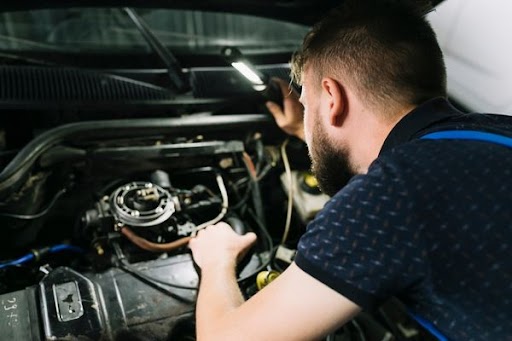
One of the most vital insights that a vehicle history report can reveal is whether the car has been involved in any accidents, as well as the repairs it’s undergone.
If the car has had even one serious collision, you should ask for repair documentation. You can then get an independent mechanic to assess the quality of work and check that the vehicle is safe to drive.
Any Other Damage
Collisions aren’t the only reason a car might have incurred serious damage. Vehicle history reports can also list damage suffered from fire, flood, hail, vandalism and more. While hail damage can be safely repaired, it’s best to steer clear of cars that have been damaged by fire or flood as these incidents can cause irreparable hidden damage.
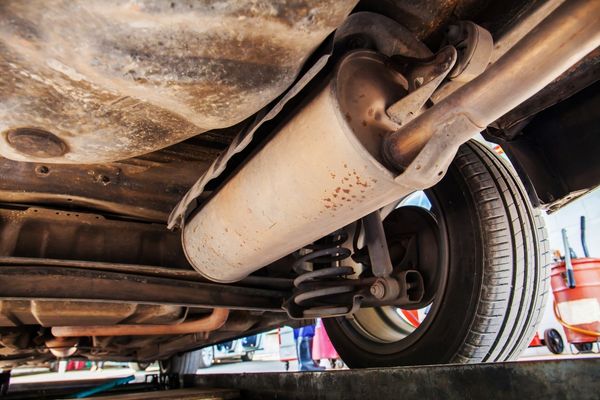
Status of Vehicle Title
It’s also a bad idea to buy a car whose ownership is in question or the subject of a lien. Luckily, a vehicle history report should tell you if the title is in any way uncertain.
Number of Previous Owners

Although you won’t get the names of the previous owners, you will be able to get a clear picture of how many hands the car has passed through.
A car with only one previous owner is often more valuable than one with several owners as it’s assumed that they would have taken good care of the vehicle. In contrast, cars owned by rental companies, commercial businesses or cars that have had many different individuals are usually seen in a negative light.
Locations and Dates of Past Sales
A used car that has had four or five previous owners might not arouse your suspicions too much. But seeing that the car has bounced from state to state between these owners should.
These kinds of patterns in the sales history can mask certain signs of vehicle damage or history issues since professional sellers of salvage history vehicles will often title the vehicle in many different states in an attempt to receive a clean title from one state or another.

Mileage
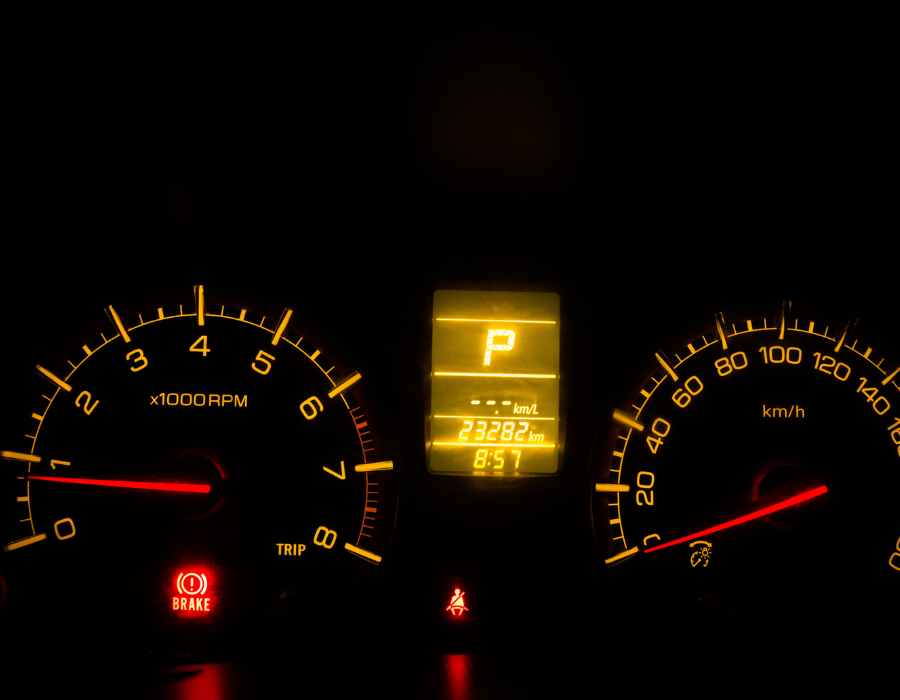
The number of miles a vehicle has covered in its history is an important factor in determining the vehicle’s value. You’ll want to make sure that the current reading on the odometer lines up with the previous recordings on the report. These recordings usually take place at various points in a car’s life, such as during major services, registrations, and changes of ownership.
While the practice of rolling back odometers isn’t as common as it used to be, you still need to be vigilant about this possibility.
Available Service History
Detailed history reports will often show when and where previous owners took the car for any major maintenance and repairs. You should use this to check whether previous owners met the required service intervals. The service history should also reveal if the same major component has been replaced several times — a huge red flag.

Registration and Inspection Data
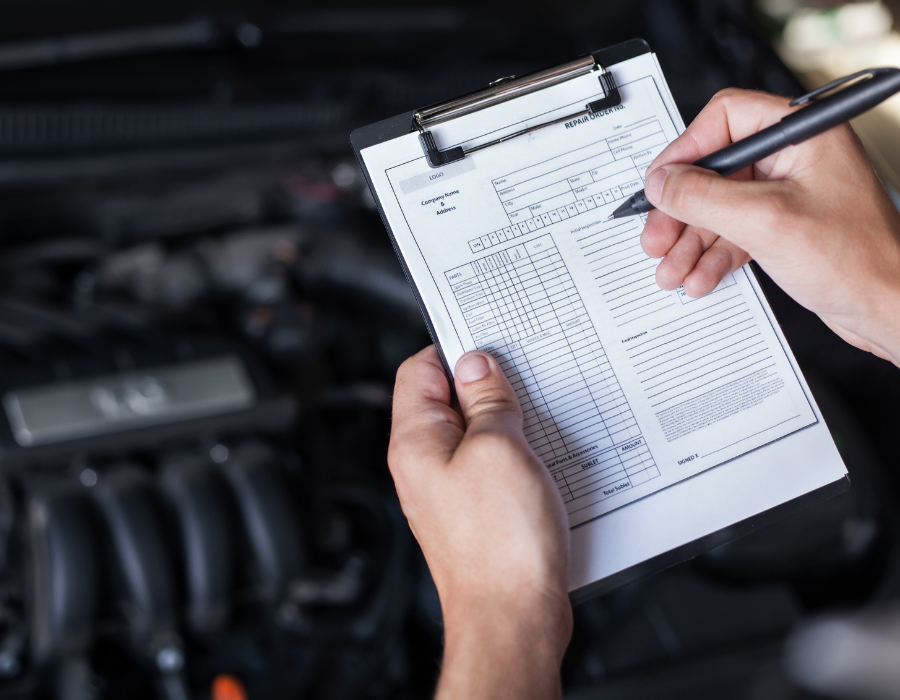
All states require vehicle registration renewals every few years while many states — including Pennsylvania — also insist on regular vehicle inspections. These DMV-documented transactions provide a wealth of vital information for vehicle history reports. What’s more, gaps in this data can also prove useful as these periods might relate to the car being stolen, abandoned, or undergoing major reconstruction work.
Any Open Recalls
A thorough vehicle history report will highlight whether the manufacturer has issued a vehicle recall, as well as whether the issue has been repaired. While a recalled vehicle might not be an immediate no-no, a car that hasn’t had the necessary repairs should be.
Lemon Status
Most states have “lemon laws,” designed to protect individuals from buying faulty cars. For a car to be labeled as a lemon, it must have been returned for the same repair several times without resolution. Once labeled as such, lemons often find their way into the used car market.
Although it’s not illegal to sell a lemon, in most states the seller must disclose its lemon status to prospective buyers. In cases where a seller does not disclose a car’s lemon status, the vehicle history report will help you discover the truth.

What’s NOT On a Vehicle History Report?
As useful as vehicle history reports are, they don’t offer a complete picture of the vehicle history. While leading providers such as CARFAX and AutoCheck work hard to capture as much information as possible, there is some information that they can’t get their hands on. This includes:
Very Recent Events

Whether you get your vehicle history report from CARFAX, AutoCheck, or elsewhere, this data isn’t in real time. Anything that happens to the car between the last reported event, repair, or otherwise, won’t show up in the vehicle history record right away. As much as companies do their best to keep vehicle history reports up-to-date, very recent events — even major ones such as collisions — can slip through the cracks.
General Conditions
Unlike an inspection, a vehicle history report won’t tell you that the tires have seen better days or that some components of that particular make and model are prone to early failure. This is why a report is useful to inform an inspection but should never act as a replacement for one.
Driving Habits of Previous Owners
Data protection laws mean that unless you’re buying a vehicle from a friend or acquaintance, you won’t ever know the names, ages, usage patterns, or driving habits of previous owners. As much as you’d like to believe the seller when they tell you that the previous owner was a little old man who never went above 50 mph, the vehicle history report can’t confirm or deny this.

Why You Should Get a Vehicle History Report
Despite the limitations of a vehicle history report, it remains a vital piece of paperwork that can help both buyers and sellers of used cars.
For Buyers

Casting a discerning eye over a potential purchase won’t tell you how well-maintained a vehicle is or if it’s been involved in a collision. A vehicle history report, though, will reveal a lot about what a car’s been through in its lifetime.
Also, as more car owners decide to sell online, a vehicle history report allows potential buyers to access detailed information about a car before they even see it.
And this data can be a lot more revealing than a visual inspection. Not least because it allows you to infer details about both the car and the seller. For example, even if an accident revealed in the report isn’t enough to put you off buying, the fact that the seller didn’t disclose this may well do.
Armed with the data revealed in the vehicle history report, you’ll also be in a position to make an informed decision about the fairness of the asking price and whether you want to request an independent inspection to verify the quality of the reported repairs.
For Sellers
Even if you’ve owned your car for a while, you might not be aware of its entire history. And, since any potential buyers are likely to obtain the vehicle history report, having access to it as well will help you avoid playing catch up. You could even offer a copy of the report to potential sellers as a show of good faith.

This proactive move also ensures that you can be as transparent as possible when listing the vehicle for sale and more prepared when answering questions.
When combined with information on your car’s value, a thorough report can also help you decide on a fair asking price. All in all, the process of selling your car should be a lot smoother when you have the vehicle history report to hand.
How to Get a Vehicle History Report
You need a car’s 17-digit vehicle identification number (VIN) to get its vehicle history report. Although, it is sometimes possible to access the report using a car’s license plate that the history report company can then decode into the VIN.
What is a Vehicle History Report?

A vehicle history report is an invaluable source of information about a car’s life, including any reported damage, the number of previous owners, and more. It’s also easy to obtain and use for reference when buying or selling a used vehicle. The vehicle history report is a valuable piece of information and can affect the value more than any other factor.

